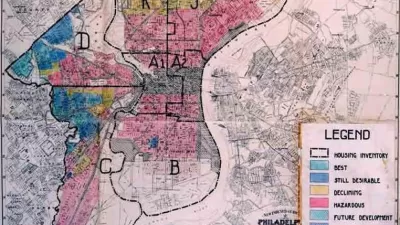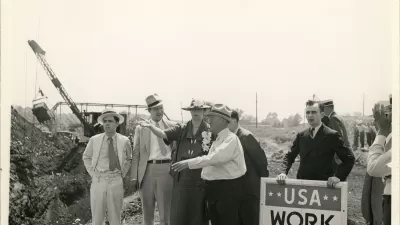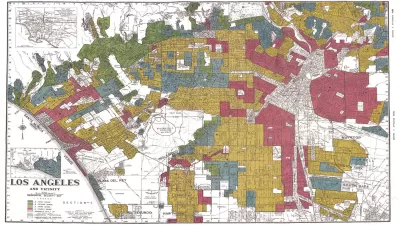As part of a series of articles in The Nation on a New "New Deal", Bill McKibben argues that we need a huge investment of labor and money into green initiatives.
"We usually talk about New Deal programs in terms of their effect on the mood of Americans--they restored hope, they gave people back their dignity and so on. Sometimes we talk about how they helped get the economy afloat again. But there was another result: the hundreds of thousands of actual projects that were built in those years. Hiking trails, city halls, bridges, park gazebos, public plazas, dams, and on and on. For my money, that's the kind of work that needs doing now, as we face a crisis even greater than the Depression: the quick unraveling of the planet's climate system in the face of our endless emissions of carbon dioxide.
Many people have used the Apollo Project (or the Manhattan Project) as the template for how we can quickly wean ourselves off fossil fuels and replace them with renewable sources of energy. That's good as far as it goes--we do need new technologies. But in a sense our task is almost the reverse of the Apollo Project. Instead of focusing our resources to land a few people on the moon, we need to spread them out to affect everyone. It's as if we've got to get the whole nation into orbit, and fast. And for that, the Works Progress Administration (WPA) and the CCC (and the industrial thrust to gear up for World War II) may provide a better analogy.
The people hired by these agencies went out and did things, and did them in large numbers--the CCC planted 3 billion trees (which would be no small help with global warming). Imagine an army of similar size trained to insulate American homes and stick solar photovoltaic panels on their roofs. They could achieve, within a year or two, easily noticeable effects on our energy consumption; our output of carbon dioxide might actually begin to level off. And imagine them laying trolley lines back down in our main cities or helping erect windmills across the plains. All this work would have real payoff--and none of it can be outsourced. You're not sending your house to China so they can stuff it with cellulose."
FULL STORY: A Green Corps

Study: Maui’s Plan to Convert Vacation Rentals to Long-Term Housing Could Cause Nearly $1 Billion Economic Loss
The plan would reduce visitor accommodation by 25,% resulting in 1,900 jobs lost.

North Texas Transit Leaders Tout Benefits of TOD for Growing Region
At a summit focused on transit-oriented development, policymakers discussed how North Texas’ expanded light rail system can serve as a tool for economic growth.

Using Old Oil and Gas Wells for Green Energy Storage
Penn State researchers have found that repurposing abandoned oil and gas wells for geothermal-assisted compressed-air energy storage can boost efficiency, reduce environmental risks, and support clean energy and job transitions.

Private Donations Propel Early Restoration of Palisades Playground
Los Angeles has secured over $1.3 million in private funding to restore the Pacific Palisades playground months ahead of schedule, creating a modern, accessible space that supports community healing after recent wildfires.

From Blight to Benefit: Early Results From California’s Equitable Cleanup Program
The Equitable Community Revitalization Grant (ECRG) program is reshaping brownfield redevelopment by prioritizing projects in low-income and environmental justice communities, emphasizing equity, transparency, and community benefits.

Planting Relief: Tackling Las Vegas Heat One Tree at a Time
Nevada Plants, a Las Vegas-based nonprofit, is combating the city’s extreme urban heat by giving away trees to residents in underserved neighborhoods, promoting shade, sustainability, and community health.
Urban Design for Planners 1: Software Tools
This six-course series explores essential urban design concepts using open source software and equips planners with the tools they need to participate fully in the urban design process.
Planning for Universal Design
Learn the tools for implementing Universal Design in planning regulations.
Ascent Environmental
Borough of Carlisle
Institute for Housing and Urban Development Studies (IHS)
City of Grandview
Harvard GSD Executive Education
Toledo-Lucas County Plan Commissions
Salt Lake City
NYU Wagner Graduate School of Public Service





























